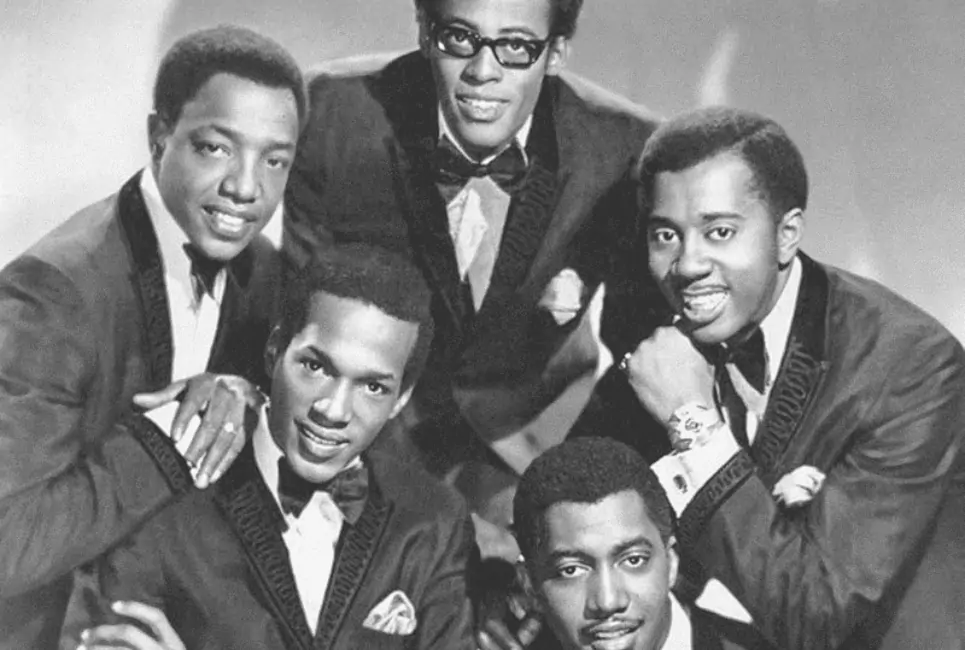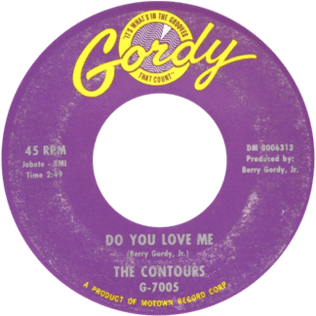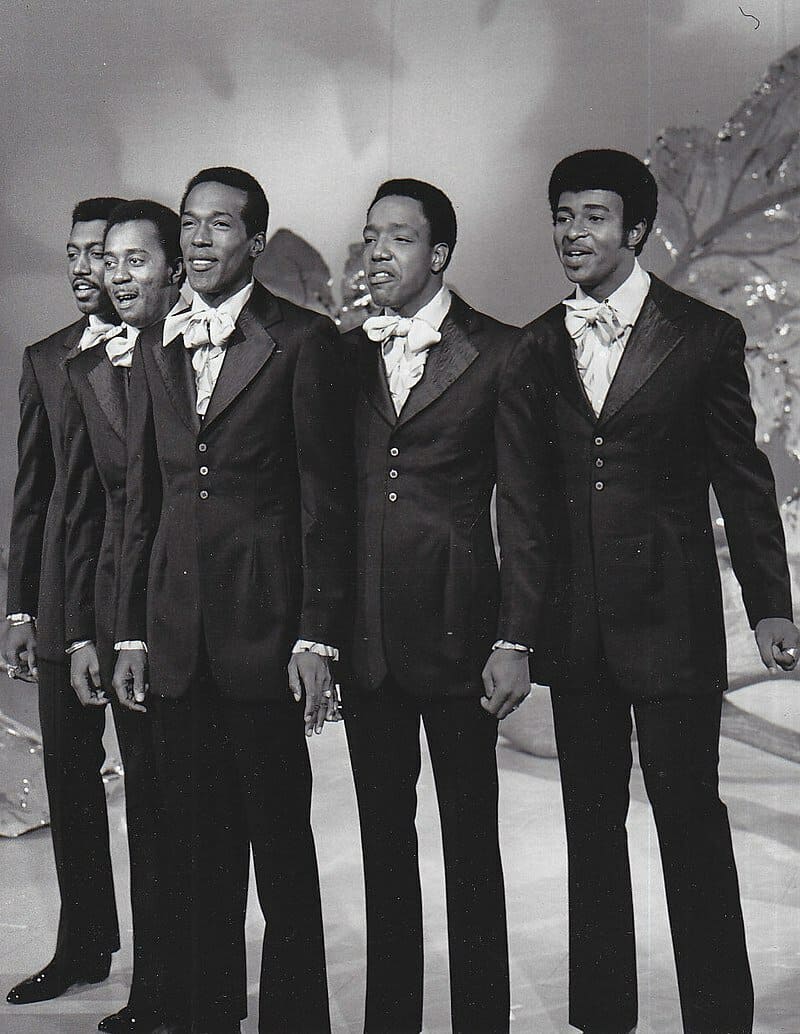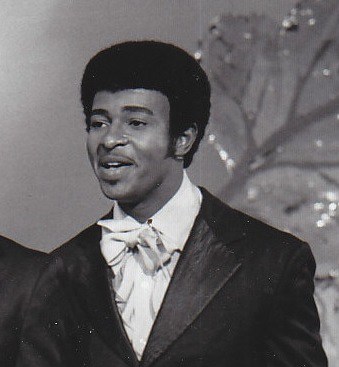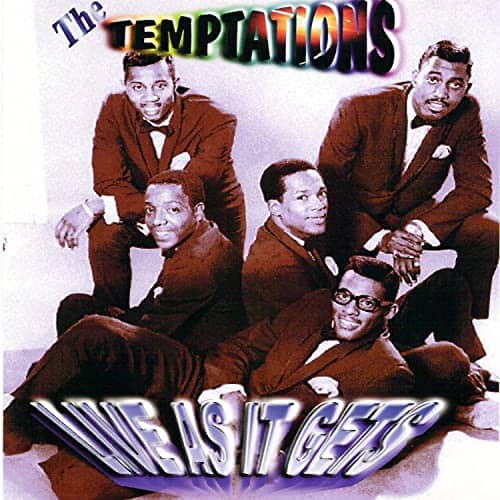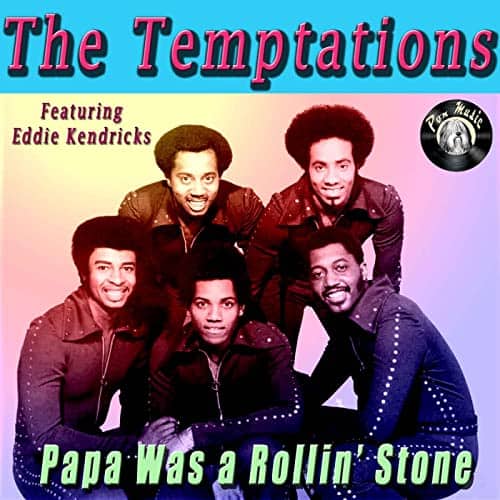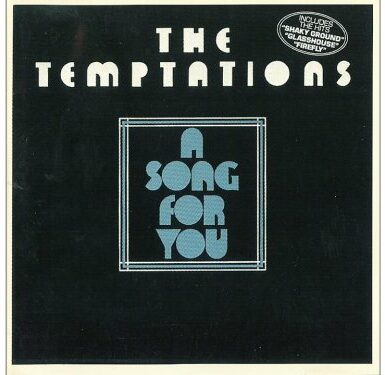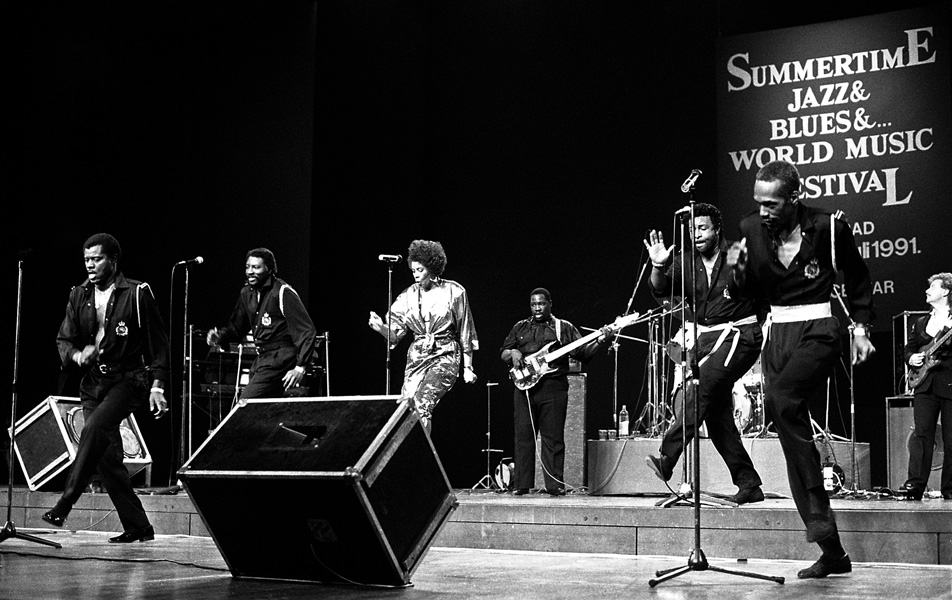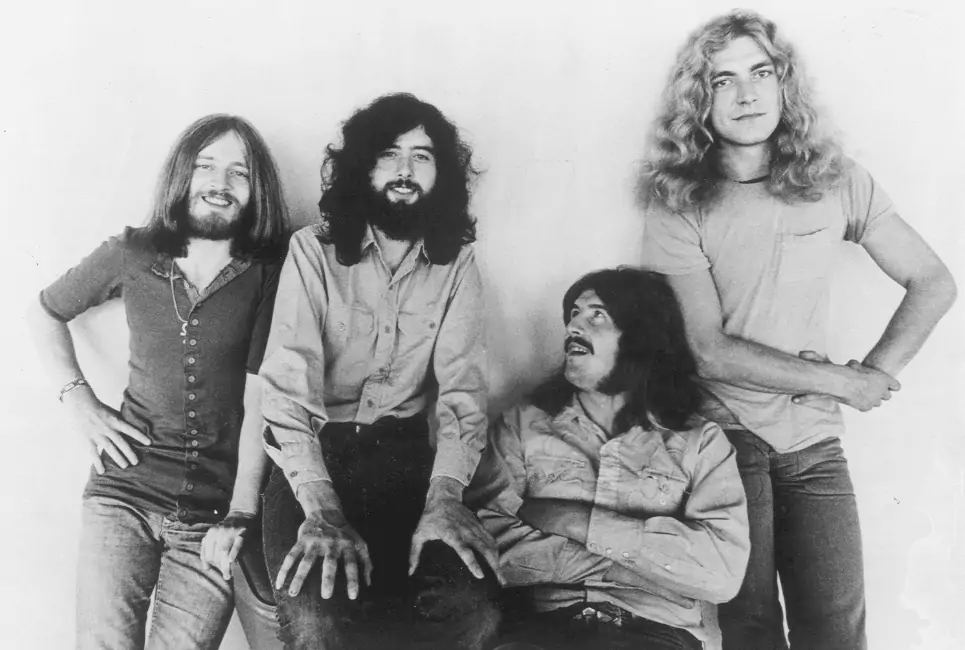- The Temptations Band History - August 26, 2022
- Roy Orbison Bio - August 9, 2022
- Elton John Bio: The Story of an Icon - July 31, 2022
The Temptations are, without question, one of music’s greatest groups of all time. Though they are a group of a distinctly American genre and their story is equally a uniquely American tale, their influence and success worldwide cannot be overstated. The Temptations were one of the pioneers of Motown’s popularity in the US, influenced international superstars including The Beatles and The Rolling Stones, and were one of the first groups to fuse the soul genre with psychedelic influences, contributing heavily to the evolution of the soul and R&B genres.
Over their now 60-year career, The Temptations have released 46 studio albums and 19 compilation albums to net tens of millions of album sales. They have had nearly 40 singles peak in the ‘Top 40’, including four #1 hits. The Temptations left an indelible mark on pop culture and over six decades after their founding continue to perform for audiences worldwide.
Quick Facts
- Band Members:
- Current members: Otis Williams, Ron Tyson, Terry Weeks, Tony Grant, Jawan M. Jackson
- Founding members: Otis Williams, Elbridge “Al” Bryant, Melvin Franklin, Eddie Kendricks, Paul Williams
- The “Classic Five” Era: Otis Williams, Melvin Franklin, Eddie Kendricks, Paul Williams, David Ruffin
- Past members: Dennis Edwards, Ricky Owens, Richard Street, Damon Harris, Glenn Leonard, Louis Price, Ali-Ollie Woodson, Theo Peoples, Ray Davis, Harry McGilberry, Barrington “Bo” Henderson, G. C. Cameron, Joe Herndon, Bruce Williamson, Larry Braggs, Willie Greene, Mario Corbino
- Genres: R&B, Soul, Psychedelic Soul
- Years Active: 1962–Present
- Origin: Detroit, MI
- Most Successful Album/Singles:
- The Temptations had four #1 hits: My Girl (1964), I Can’t Get Next to You (1969), Just My Imagination (Running Away With Me) (1971), Papa Was a Rollin’ Stone (1972)
- They had four albums peak in the Top 5: 1968’s Diana Ross & the Supremes Join the Temptations (#2), 1969’s Cloud Nine (#4) and Puzzle People (#5), and 1972’s All Directions (#2)
- Website: https://www.temptationsofficial.com/
- Social Media:
- Awards:
- 5 Grammy Awards
- Lifetime Achievement Award (Recording Academy)
- R&B Male Group of the 20th Century by The Rhythm & Blues Hall of Fame
- Inductees into the Rock and Roll Hall of Fame (1989)
- Vocal Group Hall of Fame (1999)
- Rhythm & Blues Hall of Fame (2013).
- Last Updated: August 2022
Live Performances
The Temptations on The Ed Sullivan Show
The Temptations Live In Atlantic City, 1983
The Temptations Live in Paris, 1973
Before They Were The Temptations
The founding members of the Temptations were Otis Williams, Elbridge “Al” Bryant, Melvin Franklin, Eddie Kendricks, and Paul Williams with each having a rich story in music before they united as The Temptations.
Eddie Kendricks and Paul Williams were friends from Birmingham, Alabama. The two met while children and sang together in their church choir. By the time they were adolescents, they had formed a doo-wop group, The Cavaliers with Kell Osborne and Jerome Averette. Eager to pursue music more seriously, the group moved to Cleveland, Ohio.
In Cleveland, the group met Milton Jenkins who persuaded them to move to Detroit, Michigan where they rebranded as The Primes. Jenkins’ strong management helped The Primes to make their mark on Detroit, even pioneering a spin-off group called the Primettes (who would later achieve massive success as The Supremes).
Otis Williams was raised in Texarkana, Texas, but moved to Detroit with his mother when he was ten. He attended Northwestern High School where he met Melvin Franklin and Richard Street. As a teenager, Otis grew interested in music and began forming singing groups: Otis Williams and the Siberians, The El Domingoes, and The Distants, the latter featuring Franklin and Street. The Distants achieved early success with “Come On”, co-written by Williams and Johnnie Mae Matthews, but couldn’t capitalize on its success.
The Primes and The Distants played the same venues and competed in the same talent shows so a friendly camaraderie already existed between these future Temptations. A breakup of The Primes sent Kendricks and Williams back home to Birmingham. Upon a return visit to Detroit to visit family, Kendricks reached out to Otis Williams and, by fate, Otis Williams needed two more singers to audition for Barry Gordon of Motown Records. Williams offered Kendricks the lead vocal slot and Kendricks accepted on the condition that Williams fill the remaining slot. Williams and Kendricks moved back to Detroit and, shortly after, auditioned for Gordon.
In March 1961, the quintet auditioned for Barry Gordon. Barry Gordon had already heard some session work of individual members and happily signed the group to the short-lived R&B-centric imprint of Motown Records, Miracle. The quintet initially used the name The Elgins (name of a premier watch brand), but upon discovery of another group using the name, the quintet decided on The Temptations. Otis Williams mused in his 1988 book, Temptations, “It was about style and elegance but also suggested romance and, frankly, sex.”
Gordy Records
The Temptations’ first three years didn’t yield much success with (You’re My) Dream Come True‘s peak at #22 on the R&B charts being the group’s best release. The Temptations narrowly missed out on 1962’s Do You Love Me which instead was given to The Contours who took the song to #2. The lack of success compounded with the demands of a working band ultimately soured Al Bryant and, following a couple of onstage altercations over the latter half of 1963, he was fired.
Bryant was replaced by the enigmatic David Ruffin, kickstarting The Temptations’ “Classic Five” era. As their reputation plummeted amidst their co-groups and executives on the Motown label, Smokey Robinson began working with the group. Smokey Robinson was already an accomplished writer/producer with a handful of hits, including 1960’s Shop Around (#2).
The following year, the Robinson/Bobby Monroe composition, The Way You Do The Things You Do, went to #1 on the R&B charts and cracked the Top 20. The single was compiled with a number of other recordings of the group and released as their first studio album, Meet The Temptations, barely cracking the Top 100.
Robinson heard great potential in Ruffin’s voice and wrote (with Ronnie White) My Girl, hoping to take advantage of Ruffin’s “mellow, gruff-sounding voice“. The single was a smash hit. It went to #1 and stayed on the charts for 13 weeks. The single would achieve Platinum certification in both the UK and the US.
My Girl absolutely defined The Temptations. 30 years later, Otis Williams reflected on its legacy, “My Girl is so universal that we could not–we tried years ago not to do My Girl in the show. We would never do that again. We got cussed out, almost ran off the stage, so it has such a universal appeal.”
Success
The culture of Motown stipulated that a songwriter would have an exclusive claim on writing a group’s next single if they had scored a hit with the group. Robinson tried to write the follow-up to My Girl, but Get Ready failed to crack the Top 20 (though it did hit #1 on the R&B chart).
Thus, enter Norman Whitfield. His composition, Ain’t Too Proud to Beg, featuring Ruffin as the lead was chosen by Gordy as the next single. The single peaked at #13 (#1 on R&B chart) and Whitfield took the stage as their main producer.
Over the next six years, The Temptations scored more success with hits like Beauty Is Only Skin Deep (#3), I Wish It Would Rain (#4), and the #1 hit I Can’t Get Next to You. Whitfield and co-writer/producer Strong pulled The Temptations away from saccharine ballads and towards politically-charged songs addressing race and society.
The changes in lyrical themes were accompanied by a change in music as well. The Temptations sound took a darker turn, embracing the brass-heavy arrangements of James Brown and the psychedelic side of Sly & the Family Stone.
The Darker Side of Success
While The Temptations began to consistently climb the charts in the late ’60s, the success began to corrupt David Ruffin. Ruffin began riding in a private limousine to-and-from performances rather than traveling with the rest of the group. Inspired by the rebranding of The Supremes to Diana Ross & The Supremes, Ruffin pressured Motown to rebrand The Temptations similarly. His behavior was exacerbated (and perhaps inspired) by a burgeoning cocaine addiction, a sickness that would envelop him and eventually claim his life in the early 90s.
As David Ruffin started to miss rehearsals, meetings, and concerts, the rest of the Temptations realized it would be wise to replace him. The straw that broke the camel’s back was Ruffin’s absence at a concert in Cleveland in 1968 which Ruffin blew off in favor of attending a performance by his new flame. By the end of the month, legal documentation was drawn up to officially fire Ruffin from the group. He was replaced by former Contour singer, Dennis Edwards.
Ruffin initially complied with the switch as he and Edwards were already good friends. However, Ruffin would prove to be less than compliant. Over the next few months, Ruffin would, despite increasing security efforts, make surprise visits to The Temptations’ performances, jumping on stage mid-set, stealing a microphone, singing the lead, and disappearing just as quickly. The problem eventually resolved itself (within the group) as, by year’s end, Ruffin would focus his efforts on legally exiting his contract with Motown.
Dennis Edwards
Dennis Edwards first couple albums with The Temptations were the live album Live at the Copa (#15) and a collaboration album with Diana Ross & The Supremes (#2). The collaboration was bound to happen someday as The Supremes began as The Primettes, a spin-off of the pre-Temptations group, The Primes. The timbre of Edwards’ voice was a little rougher than Ruffin’s mellow timbre, but nonetheless proved to work for The Temptations and their next step.
Beyond a trade in lead vocals, The Temptations headed in a new direction, sonically. Whitfield began to produce the ‘psychedelic soul’ that would take The Temptations to the next level: funkier grooves, a more-pronounced beat, and a more equal share of lead vocal duty amongst the five Temptations all while maintaining the smooth production of Motown.
Cloud Nine, The Temptations’ first single to feature Edwards, peaked at #6 and won Motown its first Grammy Award (Best R&B Vocal Group Performance). The success of The Temptations new fusion of genres also uplifted other artists on the Motown label including Diana Ross & The Supremes and Marvin Gaye.
The Temptations were able to capitalize on this new sound with a few more albums (Cloud Nine (#4), Puzzle People (#5), and Psychedelic Shack (#9)) and singles (Runaway Child, Running Wild (#6), I Can’t Get Next to You (#1), Psychedelic Shack (#7)) performing quite well.
The Heavy Toll of Success…again
Paul Williams, burdened by the stress of touring and compounded by personal affairs, began drinking in the mid-60s to deal with the depressive symptoms that manifested. By the late 60s, Williams was suffering through a severe case of alcoholism. Despite hiring former Distant and current Monitor Richard Street to join the group on tour to plug in the holes when Williams couldn’t perform (to the best of his ability), his failing health (he was also diagnosed with sickle-cell anemia) took a toll on the group at large. He would officially leave the group in May of 1971 at the advice of his doctor, but returned occasionally as an adviser and choreographer.
Eddie Kendricks was also dealing with a rift in the group. Unhappy with the firing of David Ruffin and less enthused about the psychedelic soul, Kendricks strongly showcased his discontent with the rest of the group, often violently. Furthermore, much like Ruffin had suspected, Kendricks was also suspicious that the Motown label was not equitably distributing the money that The Temptations had earned. In 1970, his calls for a strike by the group went unsupported and, in the tail end of the year, Kendricks walked away from the group.
Despite his attitude towards the group, Just My Imagination, which would be the last single featuring Kendricks, peaked at number 1 shortly into 1971. But, by this time, Kendricks had already sorted out his legal departure from the group and began his solo career with Tamla. With Kendricks gone, Whitfield re-recorded It’s Summer with the remaining four members. This was the first Temptations non-B-side to miss the Top 40 since 1962’s Paradise.
Gaining Traction
The Temptations eventually filled the gap of their fifth member with Damon Harris, a 20-year-old Baltimore native who had his own Temptations tribute group, The Young Tempts. The early ’70s saw The Temptations making further leaps sonically. In 1972, The Temptations released the Whitfield-produced Papa Was a Rollin’ Stone.
Initially released as a 3-minute song by The Undisputed Truth, Whitfield expanded the song to a 12-minute epic composition of which an edited 7-minute version was later released as a single. It spent 16 weeks on the chart and peaked at #1, making it the third-longest single (at the time of its release) in chart history to go to #1.
Emboldened with Papa Was a Rollin Stone‘s success, Whitfield began writing more sprawling, operatic songs. Masterpiece off the eponymous album peaked at #7, at over 13 minutes. The average length of the songs on Masterpiece was over 7 minutes. Despite the massive success of these two singles (Papa Was a Rollin Stone earned the group their second Grammy) and the number of other songs earlier in their collaboration, the group was growing tired of Whitfield, citing the sacrifice of their vocal abilities for his sprawling instrumentals, his arrogance, and declining album sales.
The December ’73 release, 1990, would be Whitman’s last collaboration with the band before leaving to form his own label. Co-producer of their In A Mellow Mood album, Jeffrey Bowen stepped in to be The Temptations’ producer. However, Jeffrey Bowen would not be enough to turn the group around.
Stagnation and Atlantic Records
The Temptations’ first album with Bowen, A Song For You, spawned three Top-40 hits, Happy People (#40), Shakey Ground (#26) and Glasshouse (#37), thanks in part to collaborations with The Commodores, Eddie Hazel (of Parliament-Funkadelic), and Billy Bass Nelson. The recording sessions saw the firing of Harris and the hiring of Glenn Leonard.
Despite a fiery start with Bowen, their next two albums fell short. Collaborations with other producers (Brian Holland, James Anthony Carmichael) and an attempt at self-producing resulted in two albums that failed to crack the Top 20 and subsequent singles that stalled before reaching the top half of the chart. The group made Dennis Edwards the scapegoat for their stagnation and, following the release of 1976’s The Temptations Do The Temptations, fired and replaced him with Louis Price.
The Temptations also pointed the finger at a lackadaisical record label and left Motown to sign with Atlantic Records. Unfortunately, a change in scenery did nothing for the band and Atlantic terminated the contract as both albums failed to reach the Top 100 with no charting singles.
Sunset Years
The Temptations returned to Motown, but could not recapture the magic of their earlier days. They released Power in 1980. While it was their best-charting album in 4 years, both the album and subsequent singles failed to crack the Top 40.
It was becoming apparent that The Temptations’ best days were, unfortunately, behind them. Besides 1982’s Reunion, featuring the return of David Ruffin and Eddie Kendricks, the group would never again crack the Top 40 with a studio album. Despite Reunion‘s success (relative to their previous 6 years of releases), the subsequent tour was no more fruitful. David Ruffin’s debilitating cocaine addiction cost the group thousands in fines for missed performances and chronic smoking had severely weakened Kendricks’ signature falsetto. Both singers were fired again by year’s end.
From the 1980s onward, The Temptations featured a perenially shifting lineup with firings, resignations, and deaths. Eleven more singers would perform as members of The Temptations, resulting in Otis Williams’ status as the last founding member of The Temptations to still perform/record under the name.
However, in 1998, The Temptations would earn their first platinum album in Phoenix Rising.
Untimely Deaths
The 1990s were a time of mourning for fans of The Temptations. Long-term health problems caught up to many of the former members. In June 1991, David Ruffin, succumbed to his two-decade long addiction and died of a drug overdose. Eddie Kendricks fought a long battle to the end.
In late 1991, he went under the knife to remove a lung to prevent the spread of cancer, the disease likely brought on by 30 years of smoking. While he turned heads by with a tour through the next summer, the cancer caught up to him and claimed his life in October. Melvin Franklin had a long life battling health problems.
The cortisone he used to battle his rheumatoid arthritis in the late 70s left his immune system weakened which led to the development of diabetes and necrotizing fasciitis. He had left the group in 1994 and the next year, a series of seizures left him hospitalized where he slipped into a coma and died of heart failure days later.
Legacy
Though The Temptations have gone 40 years without a run up the charts, either through new releases or a massive resurgence in interest of their back catalog, their legacy as a vocal group is voluminous. The group helped to push the smooth R&B sounds of Motown into the mainstream and pioneered a new fusion of genres in Psychedelic Soul.
They are a part of the historical Motown scene and record label, a uniquely American sound and impact on American culture. Their contributions go beyond Rhythm & Blues and Soul. Just My Imagination, Papa was a Rollin’ Stone, and My Girl are included as part of the 500 Songs That Shaped Rock and Roll by the Rock and Roll Hall of Fame.
The Temptations have been well-celebrated throughout their entire career. They’ve earned 5 Grammy Awards, including a Lifetime Achievement Award in 2013. They are inductees into the Rock and Roll Hall of Fame (1989), the Vocal Group Hall of Fame (1999), and the Rhythm & Blues Hall of Fame (2013, being celebrated as the R&B Male Group of the 20th Century in 2017).
Despite a trial for defamation by former members of The Temptations or their estates, a miniseries based on Otis Williams’ autobiography was created in 1998 and was nominated for 5 Emmy Awards. As further testament to their long and illustrious career, a jukebox musical: Ain’t Too Proud: The Life and Times of The Temptations was devised and opened on Broadway in 2019.
The musical earned 11 Tony nominations, including a nomination for Best Musical, and took home the Tony Award for Best Choreography. The cultural interest and hunger for The Temptations remain strong to this day.
Discography
- Meet the Temptations (1964)
- The Temptations Sing Smokey (1965)
- The Temptin’ Temptations (1965)
- Gettin’ Ready (1966)
- The Temptations with a Lot o’ Soul (1967)
- The Temptations In A Mellow Mood (1967)
- The Temptations Wish It Would Rain (1968)
- Diana Ross & The Supremes Join The Temptations (1968)
- Cloud Nine (1969)
- Together (1969)
- Puzzle People (1969)
- Psychedelic Shack (1970)
- The Temptations Christmas Card (1970)
- Sky’s the Limit (1971)
- Solid Rock (1972)
- All Directions (1972)
- Masterpiece (1973)
- 1990 (1973)
- A Song for You (1975)
- House Party (1975)
- Wings of Love (1976)
- The Temptations Do The Temptations (1976)
- Hear to Tempt You (1977)
- Bare Back (1978)
- Power (1980)
- Give Love at Christmas (1980)
- The Temptations (1981)
- Reunion (1982)
- Surface Thrills (1983)
- Back to Basics (1983)
- Truly for You (1984)
- Touch Me (1985)
- To Be Continued… (1986)
- Together Again (1987)
- Special (1989)
- Milestone (1991)
- For Lovers Only (1995)
- Phoenix Rising (1998)
- Ear-Resistible (2000)
- Awesome (2001)
- Legacy (2004)
- Reflections (2006)
- Back to Front (2007)
- Still Here (2010)
- All the Time (2018)
- Temptations 60 (2022)
FAQs
Question: How old is Otis Williams?
Answer: Otis Williams is the last surviving member of the original lineup of The Temptations and, as of July 2022, is 80 years old.
Question: How many Temptations were there in all?
Question: Who was the best Temptations lead singer?
Answer: There is no definitive answer. The best-charting singles (ie. #1s) of the band have a different singer holding down the lead vocal. During their psychedelic soul period, all five members sang solo at some point on the track. But it is perhaps worth noting that The Temptations didn’t really take off until David Ruffin entered the fray as lead singer, scoring a #1 hit with My Girl the year he joined the band.
SOURCES
- About | The Temptations
- History | The Temptations
- The Temptations – Wikipedia
- The Temptations – Genius.
- The Temptations’ Albums Ranked
- The Guardian: Otis Williams: ‘The Temptations didn’t love themselves’
- NPR: My Girl
- The Temptations – Britannica
- The Temptations – Encyclopedia
- The Temptations – Musician Guide

